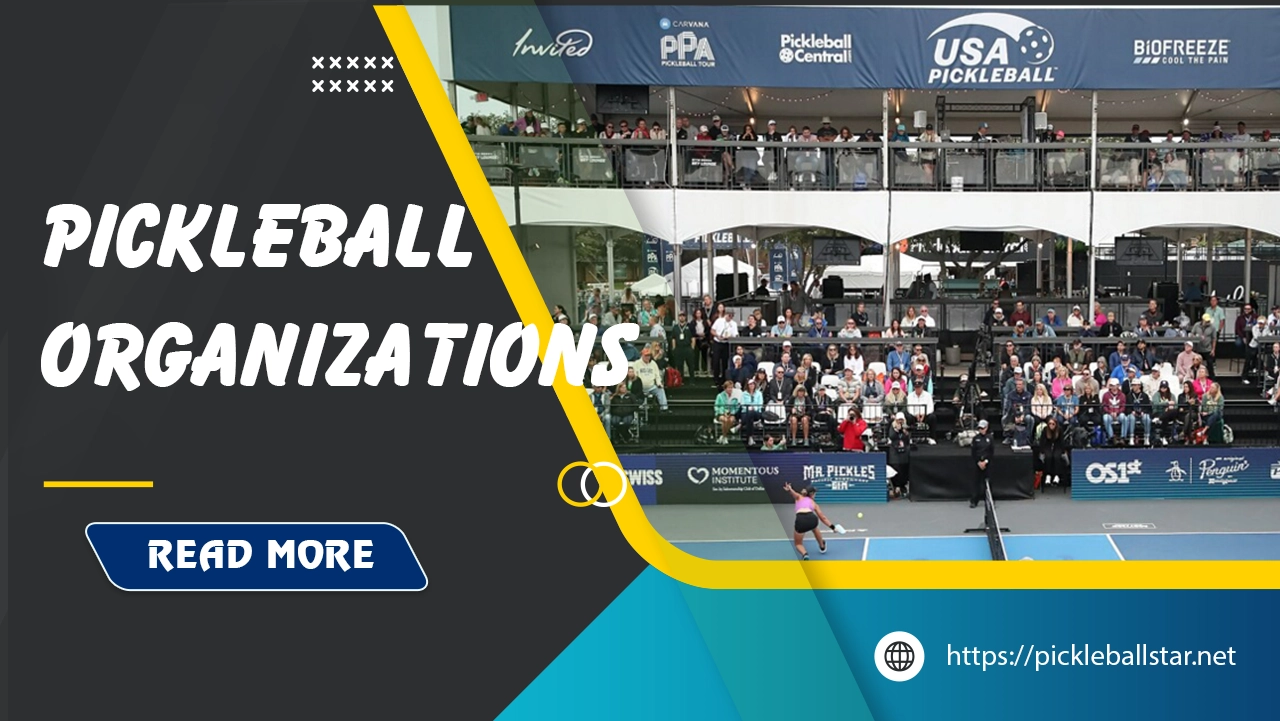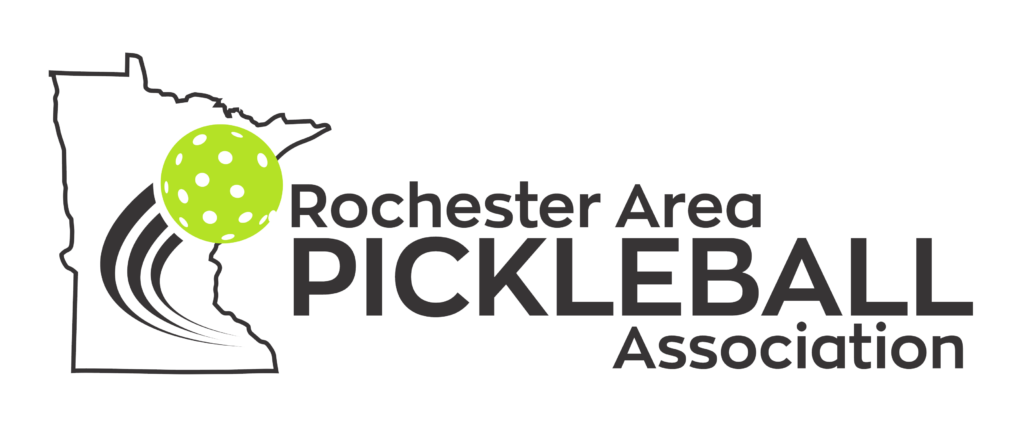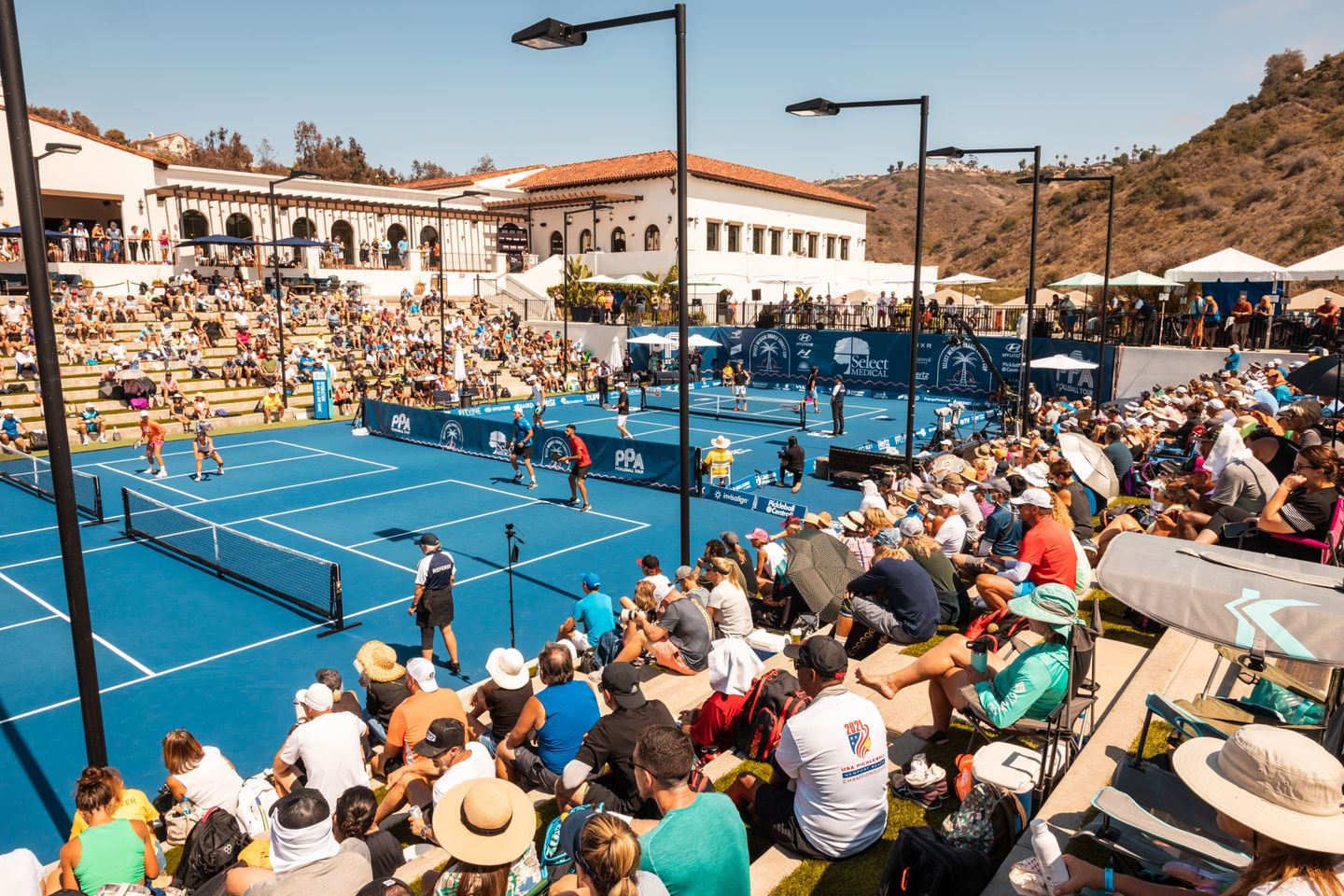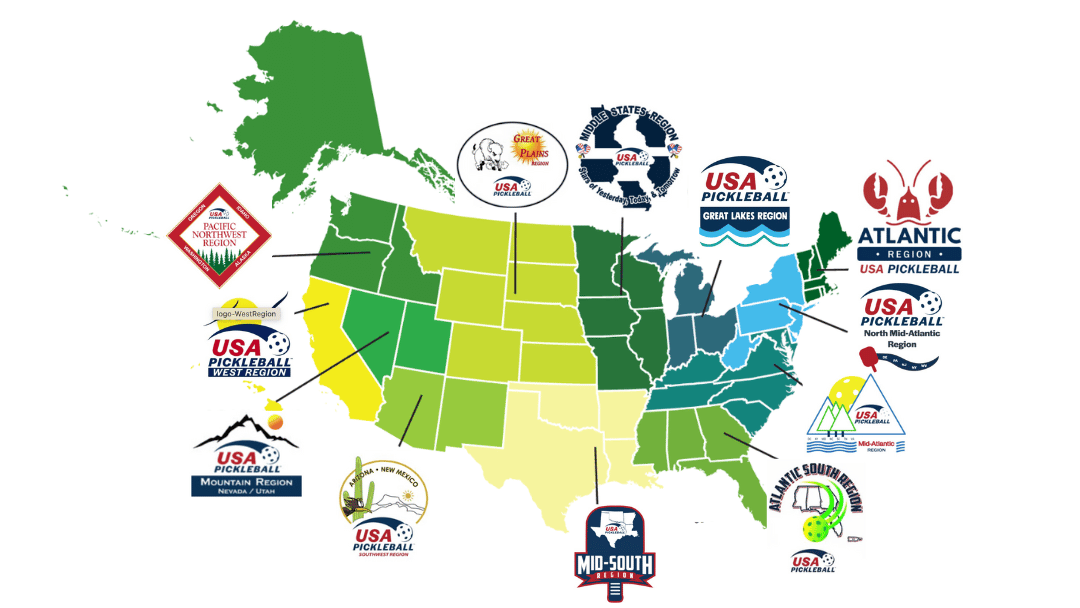Pickleball Organizations: Top Bodies You Need To Know
Pickleball’s explosive growth has led to a question on many players’ minds: Who are the authorities behind this sport? This article dives into the world of pickleball organizations, exploring the role they play in establishing rules, organizing tournaments, and fostering the sport’s growth. From local clubs to international federations, you’ll discover the network that keeps pickleball thrivin.

Types of Pickleball Organizations
National Pickleball Organizations
USA Pickleball: Leading the Charge in the United States

In the United States, no pickleball organization is more influential than USA Pickleball (USAP). Formerly known as the USA Pickleball Association (USAPA) until 2020, USAP has over 40,000 members and has set the gold standard for the sport’s governance. This organization is responsible for:
- Establishing and enforcing rules: USAP ensures that the official rules of pickleball are standardized and updated, maintaining the sport’s integrity and consistency.
- Sanctioning tournaments: From local events to national championships, USAP oversees and sanctions a wide range of tournaments, ensuring fair play and organization.
- Promoting the sport: USAP runs campaigns to promote pickleball, making the sport more accessible and popular across the United States.
USA Pickleball is not just about competitive play; it also offers resources such as coaching materials, equipment guides, and player development programs. This makes USAP an essential entity for anyone serious about the game, whether they’re beginners or seasoned players.
Other National Bodies
While USAP is the largest, several other national organizations also contribute significantly to the pickleball community. Each focuses on specific aspects:
- Pickleball Canada: The governing body for pickleball in Canada works similarly to USAP. It organizes national championships and provides members with access to coaching, training resources, and merchandise discounts.
- Pickleball England: This organization spearheads the development of pickleball in England, organizing tournaments, leagues, and training programs to ensure the sport’s growth.
These bodies share common objectives: promoting pickleball, organizing events, and supporting players. They also ensure that the game is played consistently and fairly across their respective countries.
International Pickleball Organizations

International Federation of Pickleball: Taking the Sport Global
At the international level, the International Federation of Pickleball (IFP) serves as the sport’s global governing body. The IFP has a critical role in spreading pickleball’s popularity worldwide. Here’s how the IFP makes a global impact:
- Establishing Unified Rules: By creating a standardized set of international rules, the IFP ensures that pickleball is played uniformly across different countries.
- Organizing World Championships: The IFP arranges international competitions, providing a platform for elite players to compete on a global stage.
- Promotional Efforts: By working with national organizations, the IFP promotes pickleball globally, encouraging more countries to adopt the sport.
The IFP’s role is invaluable in making pickleball a universally recognized sport. Its efforts have led to burgeoning popularity, transforming pickleball from a niche game into an international phenomenon.
Local Pickleball Organizations
Local Pickleball Clubs: Connecting Players and Fostering Growth
Local pickleball clubs are the sport’s backbone at the community level. These clubs create opportunities for players to connect, improve their skills, and enjoy competitive play. Key activities organized by local clubs include:
- Leagues and Tournaments: Clubs organize events catering to various skill levels, from beginners to advanced players.
- Social Events: Clubs often arrange social gatherings, fostering camaraderie and a sense of community among members.
- Training Programs: Local clubs may offer lessons and clinics to help players improve their skills.
Being part of a local club offers numerous benefits. Apart from improving your game, you get to meet like-minded individuals, build friendships, and enjoy the social aspects of pickleball.
Pickleball Clubs

Structured Yet Inclusive
Pickleball clubs, which require membership fees, operate similarly to other sports clubs. They offer structured environments where members can play, train, and compete. Some common services provided by pickleball clubs include:
- Lessons and Clinics: Clubs often provide coaching for various skill levels.
- Exclusive Tournaments: Members can participate in club-sponsored tournaments.
- Facilities Access: Many clubs offer exclusive access to high-quality courts and facilities.
Joining a pickleball club can significantly enhance your playing experience. It provides a structured environment to hone your skills and offers exclusive opportunities and amenities that informal groups might not.
Pickleball Community Groups

Informal, Yet Effective
Community groups, characterized by their informal nature, play a different but equally important role. These groups are often grassroots initiatives where local players gather to play casually. Activities can range from casual meetups to organizing local events. The informal setting suits:
- Newcomers: Casual players looking to enjoy the game without the commitment of a club membership.
- Community Engagement: These groups often have strong ties to local community centers and parks departments.
Community groups may not have the resources of larger organizations, but they offer inclusivity and accessibility, making them appealing for casual players.
Pickleball Associations

Bringing Focused Resources
Pickleball associations often operate as non-profit entities focusing on specific aspects of the sport, like coaching and officiating. They provide specialized resources that are invaluable for the development of players and coaches. Some key functions include:
- Certification Programs: For coaches and referees.
- Specialized Training: Advanced clinics and workshops.
- Resource Libraries: Guides, tutorials, and best practices for players and coaches.
Associations add another layer of support for pickleball’s development, particularly in niche areas. Joining such associations can offer advanced knowledge and skills, elevating the overall quality of the sport.
Benefits of Joining a Pickleball Organization

Access to Resources and Training
Perhaps the most immediate benefit of joining a pickleball organization is access to a wealth of resources. Organizations often provide:
- Coaching and Clinics: From beginner to advanced levels, coaching programs help players refine techniques and strategies.
- Certification Programs: Official certification for coaches and referees enhances the quality of training and officiating.
- Training Materials: Access to instructional videos, articles, and manuals.
For example, USA Pickleball and the IFP offer online resources that players can use to self-study or complement formal coaching. This access to resources ensures continuous improvement and raises the overall level of the game.
Community and Social Interaction
Pickleball organizations create a sense of belonging and community among players, offering:
- Social Events: Regular gatherings, themed events, and outings.
- Networking Opportunities: Meeting players of different skills and backgrounds fosters friendships and mentorship.
- Connecting with the Local Community: Through charity events, volunteering work, and community outreach programs.
For instance, local clubs often host BBQs, holiday parties, and other social events, contributing to a vibrant and tight-knit community atmosphere. Beyond just playing, these events provide players with cherished memories and strong social bonds.
Support for the Sport’s Growth
Organizations play a crucial role in advocating for the sport’s development. Notable efforts include:
- Lobbying for Facilities: Campaigning for the construction or maintenance of pickleball courts.
- Promotional Campaigns: Initiatives to spread awareness and encourage new players to join.
- Youth Programs: Developing programs aimed at attracting younger players to ensure the sport’s longevity.
For example, the IFP has collaborated with educational institutions to introduce pickleball in curriculums, aiming to groom the next generation of players. The dedication of organizations in promoting and supporting pickleball is pivotal for its future growth and sustainability.
Finding the Right Organization

Consider Your Goals and Interests
Choosing the right pickleball organization depends on your personal goals and interests. Ask yourself:
- Are you looking to compete professionally or play casually? Some organizations focus more on competitive play, while others may be more community-oriented.
- What level are you currently at? Whether beginner or advanced, different organizations offer varying levels of support and resources.
- Do you prefer structured environments or informal settings? Clubs and national organizations provide more structure, whereas community groups offer a laid-back environment.
Research Local and National Organizations
Take the time to research organizations in your area and beyond:
- Visit Websites: Explore official websites to understand services and benefits offered.
- Social Media: Follow organizations on social media for updates, event announcements, and community interactions.
- Member Reviews: Reading testimonials and reviews from current members can provide insights into the organization’s culture and effectiveness.
For instance, the USA Pickleball website lists affiliated clubs, offering an easy way to find local organizations.
Contact Organizations for More Information
Don’t hesitate to reach out to organizations directly:
- Ask Questions: Reach out to understand membership requirements, costs, and benefits.
- Visit Courts: If possible, visit during events or league nights to observe activities and get a feel for the community.
- Trial Memberships: Some clubs and organizations offer trial memberships or visitor passes, allowing you to experience their offerings firsthand.
Conclusion
In summary, pickleball organizations are the pillars supporting the sport’s rapid growth and development. From national governing bodies like USA Pickleball, which set the standards, to local clubs and community groups that foster grassroots engagement, these organizations play a crucial role in promoting, organizing, and enhancing the sport.
Joining a pickleball organization offers numerous benefits, including access to resources and training, community and social interaction, and support for the sport’s growth. Whether you are a beginner looking to learn, a competitive player seeking challenges, or someone who just wants to enjoy the social aspects, there is an organization out there that fits your needs.
So, take the initiative to explore and get involved with a pickleball organization today. Enhance your playing experience, make new friends, and contribute to the vibrant and growing pickleball community. The journey begins with that first step onto the court, where the love of the game unites players from all walks of life.
